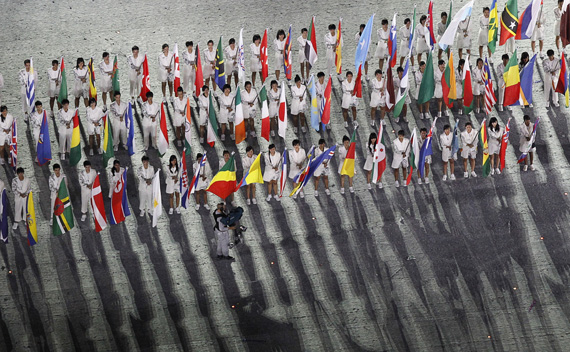Welcome to The Internationalist

Welcome. Join me for a lively conversation about world order and U.S. leadership in the 21st century.
The Internationalist focuses on three big themes:
- How rising powers are altering world politics—and the prospects for international cooperation;
- How globalization is testing national sovereignty—including in the United States; and
- How multilateral institutions can adapt to these trends—while advancing U.S. interests.
Why these topics? Because we’ve entered uncharted territory.
Tectonic power shifts are shaking the foundations of the Western liberal order created after 1945 under U.S. leadership. The sovereign state, bedrock of the international system, is under siege. And inherited multilateral institutions are straining to deliver stability, peace and prosperity in the face of new threats.
As new realities take shape, we must candidly evaluate the international consequences and how the U.S. should react.
American hegemony is in retreat. In 2010, developing countries accounted for 49% of global GDP. By 2025, the figure will be 60%. The “BRIC” countries— Brazil, Russia, India, and China—today account for 18% of global economic activity–up from 10% just 5 years ago. The Obama administration’s National Security Strategy seeks to integrate rising powers as pillars of an open global system. But there’s no guarantee they will become “responsible stakeholders”. Beyond their incentives to free ride, rising powers are determined to be rule-makers, not simply rule-takers. None is revolutionary—hoping to totally reconfigure the world order as Mao’s China aimed to, for example. But all are revisionist, convinced that inherited rules—from trade to finance to non-proliferation—are stacked against them. Is it possible to forge common ground in such a setting?
State sovereignty, too, is on the ropes. Around the world, dozens of countries lack the capacity—and sometimes the will—to fulfill basic state functions, potentially endangering global security. Drawing on my just-released book, Weak Links, I’ll explore the connection between state fragility and transnational threats like terrorism and infectious disease—and ask what the international community can do to nurture more effective states. And I’ll engage debates on whether sovereignty should be contingent on fulfilling fundamental obligations—like the “responsibility to protect” one’s own citizens—which has aroused such controversy from Sudan to Libya.
The boundaries of national sovereignty remain a lightning rod issue not only abroad, but here at home. It’s no accident that John Bolton titled his United Nations (UN) memoirs Surrender is Not an Option. Many Americans worry that trends in international law and global norms, as well as membership in international organizations, will undermine American “exceptionalism,” constrain U.S. freedom of action and domestic policy autonomy, and infringe on Congressional prerogatives and the supremacy of the U.S. Constitution. The Internationalist will ask: What’s at stake in this debate? And how is it likely to play out in different arenas, from arms control to human rights? Global integration may require “a little less sovereignty”, as pragmatists like Richard Haass have argued. But how can we ensure democratic accountability and preserve U.S. prerogatives in such a world?
Finally, The Internationalist will explore innovations in multilateral cooperation—asking which are best placed to address transnational challenges like terrorism, climate change, and financial instability. During the twentieth century, formal organizations like the United Nations, North Atlantic Treaty Organization (NATO) and the World Bank generally took pride of place. They still exist. But today’s institutional landscape is much more complicated—and sometimes bewildering. Treaty-based institutions like the UN share space with consultative forums like the Group of 20 nations (G20), regional organizations like the African Union (AU) or Association of Southeast Asian Nations (ASEAN), informal networks of public officials, and public-private partnerships like the Global Fund for AIDS, tuberculosis, and Malaria. Are outmoded legacy organizations like the UN and World Bank actually capable of reform, or should they be put out to pasture? Can we leverage new, flexible frameworks without undermining the permanent institutions we need over the long haul?
In foreign affairs as in life, it can be hard to see deeper meaning in the blur of daily events. History in the making, as Toynbee is said to have remarked, often seems like “one damn thing after another.” This is particularly true for policymakers, subject to the tyranny of the in-box. The Internationalist will try to look behind the headlines, to reveal the deeper forces, dilemmas and stakes at play in the emerging world order.
 Online Store
Online Store